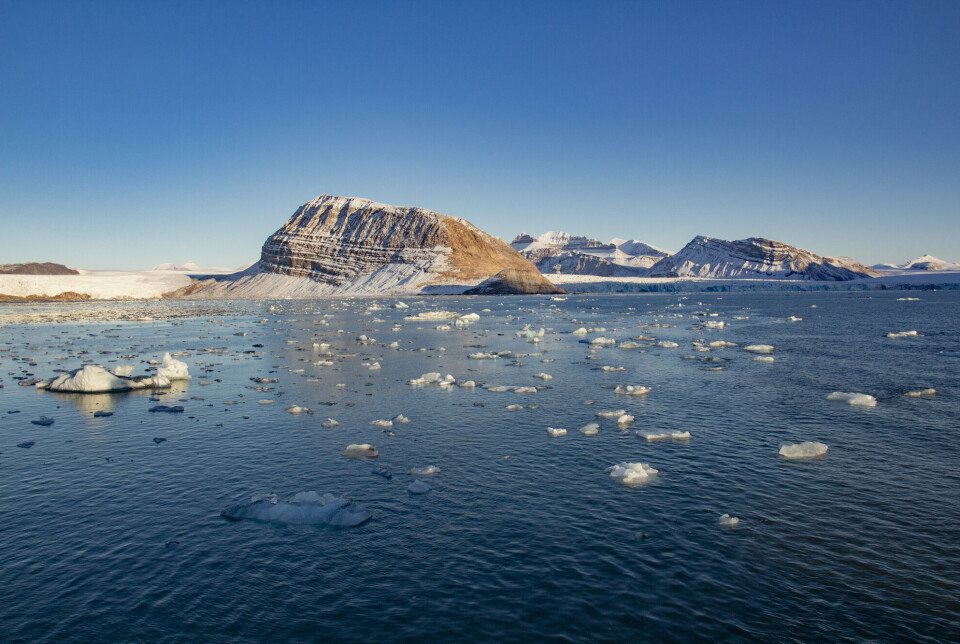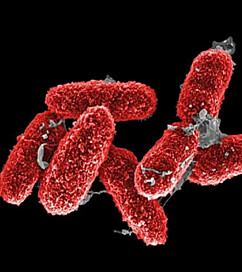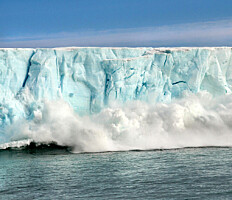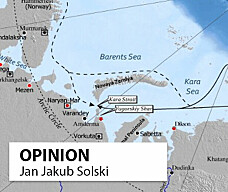
The war in Ukraine has undermined environmental and climate research in the Arctic
The sanctions against Russia are putting the brakes on Arctic research. The lack of cooperation with the Russians means that a lot of information is being lost, says the Norwegian Polar Institute.
“Due to the sanctions against Russia, we currently know very little of developments on the Russian side. This is quite serious,” says Ole Arve Misund, director of the Norwegian Polar Institute.
He emphasizes that the Polar Institute supports the sanctions that have been imposed as a result of Russia's aggressive war against Ukraine, but thinks people should know that the sanctions are also affecting collaborative research. He hopes that at some point the collaboration will begin again.
“Russia covers around 45 per cent of the Arctic. Because of the war, all bilateral cooperation, all institutional cooperation, has been put on hold. There is some contact between researchers, but very little,” Misund said.
Unfortunate situation
He points out that the situation is unfortunate in view of the fact that Norway has had very extensive cooperation with the Russians, with their ample research resources, research stations and icebreakers.
Misund says it is difficult to say what consequences the break in the collaboration has or will have.
“We are keeping a close eye on developments in the European and North American arctic areas, but that represents only a little over half of the Arctic as a whole. In the short term, there is now a lack of data on what is happening on the Russian side, data on permafrost, the Russian tundra, and ecosystems on both land and sea,” he said.
Influences climate research
In addition to making it impossible for researchers to visit large parts of the Arctic that are in the Russian economic zone, ties with Russian scientists, who have a lot of knowledge in the area, have largely been severed.
Örjan Gustafsson, a professor of biogeochemistry at Stockholm University, emphasizes that the situation is having a negative effect on environmental and climate research overall.
What happens in the Arctic is very important from a global perspective. The rapid warming in the Arctic, for example, has consequences for the entire planet.
Melting land ice contributes to global sea level rise, as one example. Thawing of permafrost releases the greenhouse gas methane. The magnitude of the impact on climate change is unclear, and researchers need to keep an eye on developments.
Most of the areas where permafrost has the potential to emit methane are on Russian territory.
Lost time, opportunities
“Methane emissions can mean that we won’t reach our climate targets. But we are dealing with one of the biggest uncertainties in climate research, and the fact that we are now losing time makes it more difficult to reduce these uncertainties. We have to go out and measure this to get ahead,” Gustafsson said to the TT News Agency, a Swedish news agency.
Gustafsson says that all official contact with Russian scientists was broken shortly after the outbreak of war when sanctions were introduced. There was no fieldwork or meetings. Personal contacts between individual researchers, on the other hand, have been allowed — but it’s not easy, Gustafsson said.
Difficult for researchers
“We have tried to keep in touch with the Russians, but it is not clear how to do this. If they are in contact with us, it may compromise their security. At the same time, they are encouraged to carry out research which is by definition international,” he said.
Gustafsson believes that it is important to maintain some contact.
“One good reason is that it may make it easier to resume cooperation on climate research after the end of the war,” he said.
He also thinks it is important to support Russian researchers, because many are having a tough time.
“Some are in prison, some have fled the country. Some barely get paid,” Gustafsson said.
Urgent situation
He believes it is urgent to begin working with the Russians again, so that climate change research doesn’t suffer. And he questions whether the sanctions in this area have had an effect on Putin’s warmongering.
“I think sanctions against climate research are unlikely to keep Putin awake at night. But the lack of research affects the whole world. I fully understand that everyone needs to do their part in opposing Russia, but I hope that politicians can consider whether all the sanctions that have been imposed are achieving their purpose, now that a year has passed,” Gustafsson said.
The ice is not broken
Misund says that the Polar Institute's position is that cooperation with Russia has been put on ice, but that the ice has not been broken.
“The cooperation can be resumed in time when possible, based on the situation around Ukraine,” he said.
He points out that the Russians took the initiative for Norwegian-Russian fisheries cooperation during the Cold War — so that sustainable fish stocks could be safeguarded. This collaboration has continued — even after Russia's invasion in February last year.
In October last year, via digital negotiations, Norway and Russia came to an agreement on fisheries for 2023. The fisheries agreement also contains technical regulations for the practice of fishing, control measures and research collaboration. Among other things, Norway and Russia have agreed on a joint Norwegian-Russian research program for 2023.
Translated by Nancy Bazilchuk
———
Read the Norwegian version of this article at forskning.no





































